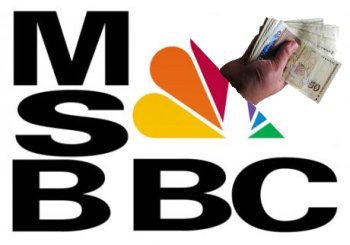BBC's Reversal of Android Stories Makes Them 'Publishable'
- Dr. Roy Schestowitz
- 2011-08-24 20:21:11 UTC
- Modified: 2011-08-24 20:21:11 UTC

Summary: The BBC continues to deceive the public with Android-hostile stories that are actually a reversal of the important truth
EARLIER this year we demonstrated and stated that the BBC only ever covers Android when there is bad news. Even then, the BBC prefers to distort the truth, for example by characterising malware (that the user has to actually install and cannot spread) as a "virus". BBC reports do a disservice to the public not just in the UK as the site is accessible to all countries. They are being paid by the public to do the job of accurate reporting; instead they pay wages to former Microsoft managers and take additional money from BIll Gates to do PR for him, disguised as 'news'. They only ever mention Android when there is something venomous to push under the "BBC" brand name. For shame really.
Here is the
latest example of the BBC's distortion of the truth. Who benefits from this? As
Muktware puts it:
Wrong. The court has given Samsung seven weeks time to fix the issues related to one of the patents. The court has rejected all other patents. The patent in question is related to the way photos are shown on these phones. Additionally, the patent is related only to Android 2.3 and doesn't affect Android 3.0. The issues is minor and can be easily circumvented. Seven weeks time is more than enough for Samsung to fix the software related issue.
'NOTE: Samsung is *allowed* to sell the phones. The ban will be imposed *only* after seven weeks that too if Samsung fails to circumvent the minor patent.
What BBC did not highlight was that the court has rejected all of Apple's claims related to the iPad. BBC also did not highlight that Samsung is free to sell its Galaxy Tab in Europe.
Meanwhile, over at another anti-FUD Web site,
advice about patent defence is being given. "This likely won't be everyone's cup of tea," states Professor Webbink, "but there is an interesting academic paper by Professor Colleen Chien of Santa Clara University School of Law entitled "Predicting Patent Litigation." You can download a free copy of the paper here [PDF] on the Social Science Research Network.
"The paper is interesting because Prof. Chien identifies a number of objective markers that identify a patent as being more likely of being asserted in litigation than the general population of patents. The really useful aspect of her analysis is that many of these markers can be discerned prior to the patent actually being asserted."
It is nice to see academia getting involved in such research because academics -- unlike patent lawyers -- do not speak for their patents-dependent wallet. They just work with the data they have and almost every time they just find that software patents are bad for the economy, competition, etc. There is a recent
study on this.
The BBC was supposed to be different. Since it is funded by the public, it is supposed to be agenda-agnostic, but it is not. If it hires senior staff from Microsoft UK, it is only a matter of time before it become some anti-Linux propaganda machine at worst and one that totally ignores GNU/Linux at best (in reality it's a mixture of both).
⬆

